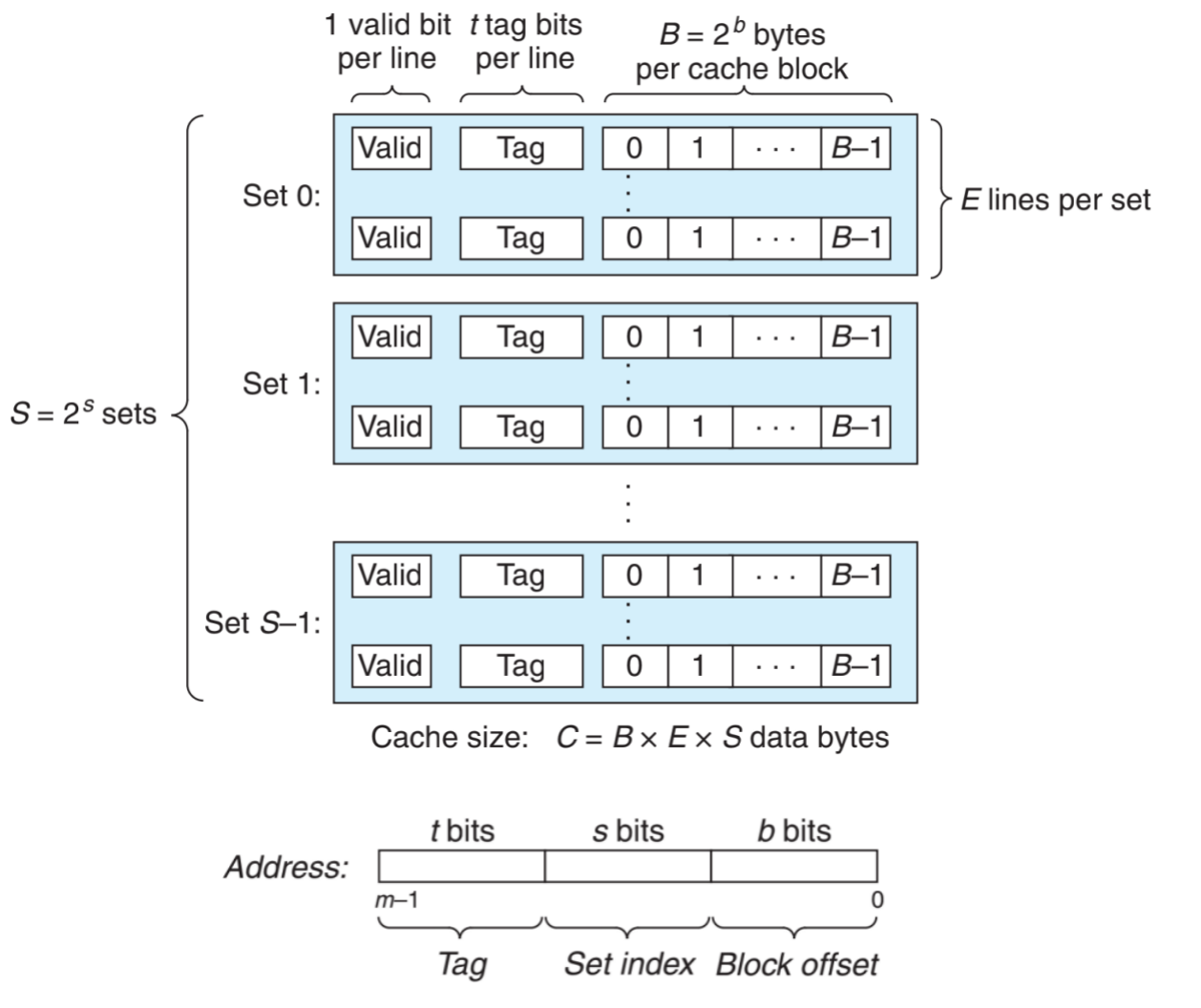#include "cachelab.h"
#include <getopt.h>
#include <stdlib.h>
#include <unistd.h>
#include <stdio.h>
#include <math.h>
typedef unsigned long int uint64_t;
typedef struct {
int valid;
int lru;
uint64_t tag;
}cacheLine;
typedef cacheLine* cacheSet;
typedef cacheSet* Cache;
const char* usage = "Usage: %s [-hv] -s <s> -E <E> -b <b> -t <tracefile>\n";
int verbose = 0;
int s;
int E;
int b;
FILE* fp = NULL;
Cache cache;
int hits = 0;
int misses = 0;
int evictions = 0;
void parseArgument(int argc, char* argv[]);
int visitCache(uint64_t address);
int simulate();
int main(int argc, char* argv[])
{
parseArgument(argc, argv);
simulate();
printSummary(hits, misses, evictions);
return 0;
}
void parseArgument(int argc, char* argv[])
{
int opt;
while ((opt = getopt(argc, argv, "hvs:E:b:t:")) != -1)
{
switch(opt)
{
case 'h':
fprintf(stdout, usage, argv[0]);
exit(1);
case 'v':
verbose = 1;
break;
case 's':
s = atoi(optarg);
break;
case 'E':
E = atoi(optarg);
break;
case 'b':
b = atoi(optarg);
break;
case 't':
fp = fopen(optarg, "r");
break;
default:
fprintf(stdout, usage, argv[0]);
exit(1);
}
}
}
int simulate()
{
int S = pow(2, s);
cache = (Cache)malloc(sizeof(cacheSet) * S);
if (cache == NULL) return -1;
for (int i = 0; i < S; i++)
{
cache[i] = (cacheSet)calloc(E, sizeof(cacheLine));
if (cache[i] == NULL) return -1;
}
char buf[20];
char operation;
uint64_t address;
int size;
while (fgets(buf, sizeof(buf), fp) != NULL)
{
int ret;
if (buf[0] == 'I')
{
continue;
}
else
{
sscanf(buf, " %c %lx,%d", &operation, &address, &size);
switch (operation)
{
case 'S':
ret = visitCache(address);
break;
case 'L':
ret = visitCache(address);
break;
case 'M':
ret = visitCache(address);
hits++;
break;
}
if (verbose)
{
switch(ret)
{
case 0:
printf("%c %lx,%d hit\n", operation, address, size);
break;
case 1:
printf("%c %lx,%d miss\n", operation, address, size);
break;
case 2:
printf("%c %lx,%d miss eviction\n", operation, address, size);
break;
}
}
}
}
for (int i = 0; i < S; i++)
free(cache[i]);
free(cache);
fclose(fp);
return 0;
}
int visitCache(uint64_t address)
{
uint64_t tag = address >> (s + b);
unsigned int setIndex = address >> b & ((1 << s) - 1);
int evict = 0;
int empty = -1;
cacheSet cacheset = cache[setIndex];
for (int i = 0; i < E; i++)
{
if (cacheset[i].valid)
{
if (cacheset[i].tag == tag)
{
hits++;
cacheset[i].lru = 1;
return 0;
}
cacheset[i].lru++;
if (cacheset[evict].lru <= cacheset[i].lru)
{
evict = i;
}
}
else
{
empty = i;
}
}
misses++;
if (empty != -1)
{
cacheset[empty].valid = 1;
cacheset[empty].tag = tag;
cacheset[empty].lru = 1;
return 1;
}
else
{
cacheset[evict].tag = tag;
cacheset[evict].lru = 1;
evictions++;
return 2;
}
}
|



